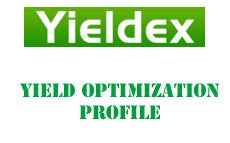 Tom Shields is Chief Executive Officer of yield optimization company, Yieldex.
Tom Shields is Chief Executive Officer of yield optimization company, Yieldex.
AdExchanger.com: How many participating publishers?
TS: We have announced Martha Stewart Omnimedia as our first publisher partner. We are currently engaged with a number of other large publishers that we are not publicizing yet.
What is your target publisher market? Can any publisher participate?
Our target market is publishers who have a direct sales force and who want to maximize their revenue on premium inventory. While any publisher could participate, we are ideally suited for larger publishers who have their own sales team.
Do you consider your company’s model full-service or self-service?
We provide tools and technology solutions for publishers to gain a deeper understanding of their premium inventory, and provide recommendations to help them optimize their yield. These tools are used by each publisher’s in-house sales and operations teams. We manage the integration of the Yieldex solution, and provide services to our publishers to ensure they are taking full advantage of our tools to maximize their revenue.
What are the advantages of a yield optimization company?
The manual spreadsheets that most operations teams are using now are insufficient to give sales the answers they need to sell efficiently. Using a next generation tool like Yieldex BusinessIQ will help everyone in the organization make better decisions, drive operational efficiency, and optimize revenue.
What are the advantages of your company’s offerings among all the yield optimization companies?
We are the only one focused on the premium inventory that is sold by a direct sales force. For most large publishers, over 70% of their revenue comes from less than 10% of their inventory, and the average CPMs of inventory they sell are $10-20 vs $1 or less for ad networks. We enable publishers to manage, predict and optimize this premium inventory. (See slide 6 of the IAB/Bain study.)
Explain your company’s revenue model.
We are software-as-a-service with a monthly flat fee based on volume.
Can advertisers or ad networks buy through your company?
No. We do not sell inventory on behalf of our clients.
If not, will either of these two be able to purchase through your company someday?
We have no plans to sell inventory at this time.
What kinds of inventory are you “optimizing”? Static display, text? Rich media? Video?
We optimize premium inventory, which is typically sold directly by publishers on a CPM or CPD basis, at a high CPM. We support any and all creative formats deployed online today.
How do you see advertising exchanges impacting your business now and in the future?
Advertising exchanges are great for our industry, because they give publishers the ability to understand the baseline value of their inventory in an open market. Larger publishers will continue to sell premium inventory directly, because many ad campaigns will require characteristics that advertising exchanges have difficulty providing (impression guarantees, exclusivity, online/offline packages, etc), but this data will allow BusinessIQ to help them to make better decisions about packaging and selling their premium inventory.
Can your yield optimization service be integrated with other ad management platforms?
Yes, we are currently integrated with several ad serving platforms and several order management systems, and are integrating with more of these based on client demand.
Where do you see your company’s product line evolving in the next 18-24 months?
We will continue to provide solutions based on our DynamicIQ platform to help maximize premium inventory. We are working closely with data vendors, ad exchanges, and sales management system vendors to expand the range and value of the analytics we provide, and make the data more actionable for publishers.
Follow Tom Shields (@tshields), Yieldex (@yieldex) and AdExchanger.com (@adexchanger.com) on Twitter.










